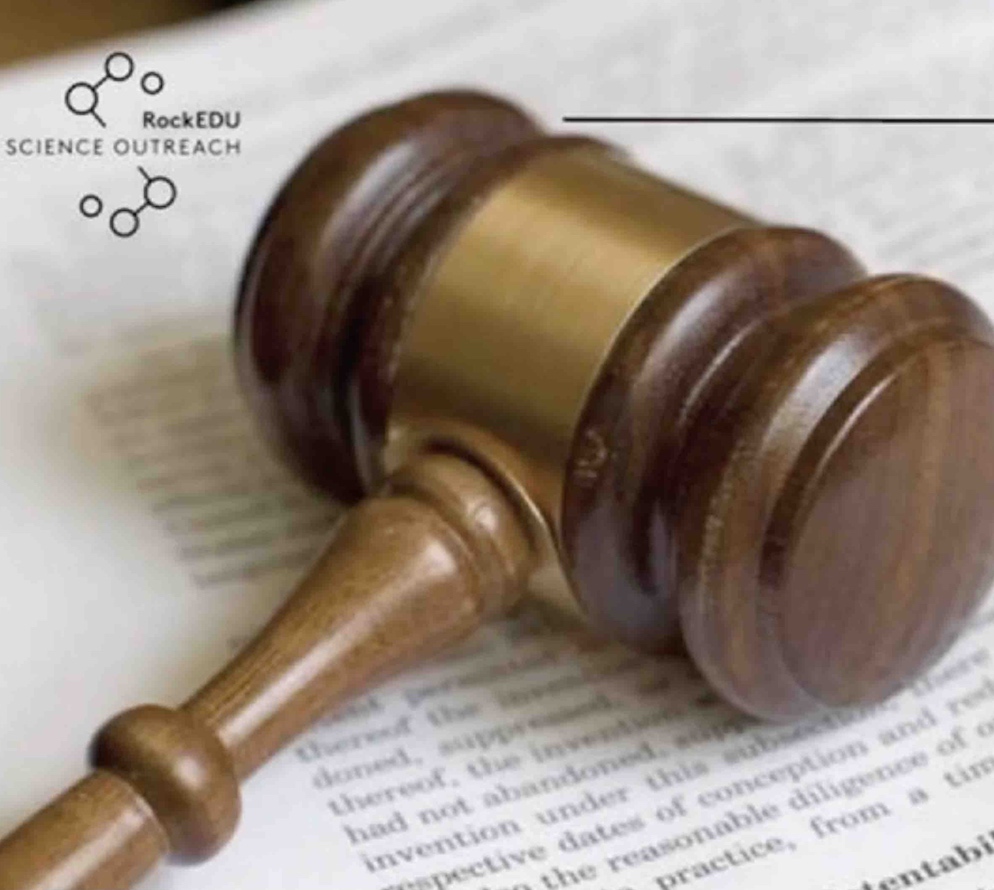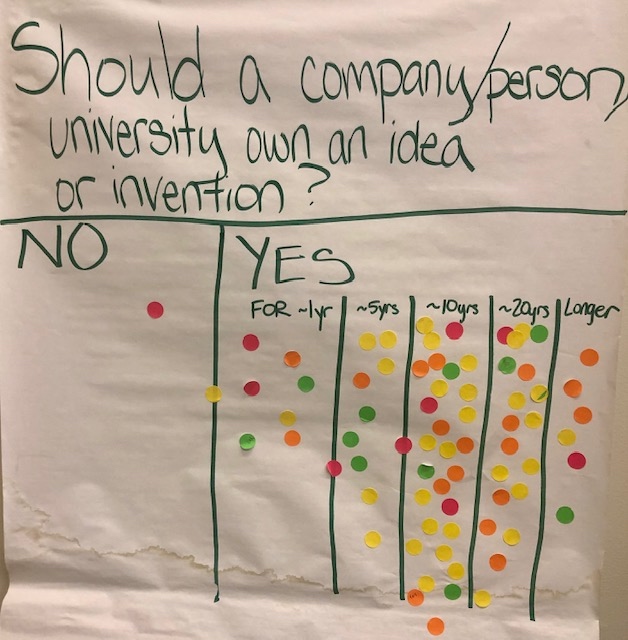Intellectual Property: Can You Own An Idea?
How does law relate to science? At first, the two disciplines may seem to be worlds apart, but in reality they interact on a frequent basis. Dr. Laura Macro, a practicing attorney with a focus in patent litigation and prosecution in the life sciences sector, visited ‘RockEDU Presents’ to share her expertise on this vast and interdisciplinary field.
To demonstrate how abstract concepts within the legal realm relate to scientific endeavors, Dr. Macro explained the legal underpinnings of scientific research—specifically relating to patent law— by allowing students to partake in thought-based exercises where they were able to formulate unique opinions on topics within the law.
But, what exactly is intellectual property? This loaded term, which is most often represented by three subgroups: patent, copyright and trademark, can be defined as an interest in intangible or tangible property that derives from the creative labor of an individual or entity.
Most recently, a legal case arose that centered around the question, “Can a company or individual patent a gene?”. 
Patents allow a ‘creator’ to claim ownership of their idea or product in a way that precludes its use or reproduction by unrelated parties. Myriad Genetics, a molecular diagnostic company based out of Utah, brought this delicate moral issue to the forefront, after laying claim to a diagnostic test that would identify the BRCA1 and BRCA2 genetic mutations. Testing for the BRCA genetic mutations has been critical in the preemptive treatment of individuals at risk of developing breast and ovarian cancer. By claiming ownership of the genetic test for BRCA1 and BRCA2, Myriad Genetics prohibited other clinics from testing for these mutations. This pivotal case traveled to the Supreme Court, where it was decided that although Myriad Genetics contributed critically to science, human genes are naturally occurring and thus cannot be patented.
While this represents just one case of a subtopic under which intellectual property resides, the nuance and dilemma within the example, above, are not all that uncommon in the law.

Students voted in favor of patenting ideas or inventions.
Amidst the interactive, RockEDU Presents dialogue, students participated in a poll where they were able to articulate their individualized thoughts on current patent laws and the impact of those laws on the progression of scientific research. Students overwhelmingly reached the conclusion that entities (company, person or universities) should own their inventions. The discussion ended with a Q&A, where students were afforded the opportunity to ask Dr. Macro about her legal expertise, career trajectory and gain insight into professional opportunities post-graduation.
The forum provided students with unique perspective into the interdisciplinary components of science exploration. Students gained invaluable insight into the legal influences that dictate scientific policy, and were exposed to the varied avenues of scientific career paths.
RockEDU Presents is series of talks and discussions held at The Rockefeller University by scientists and educators across varied disciplines. High school students from New York City are invited to partake in this free resource where they can engage with topics in a dynamic fashion.
Check back, shortly, for the full video!
